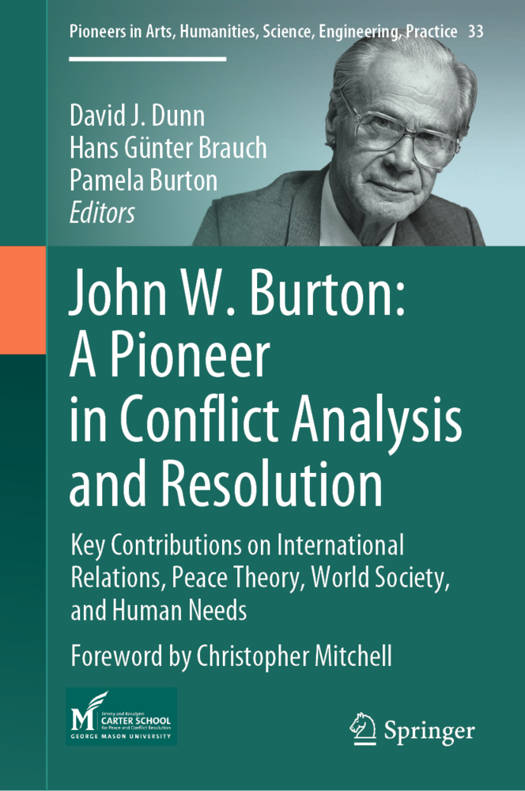
- Afhalen na 1 uur in een winkel met voorraad
- Gratis thuislevering in België vanaf € 30
- Ruim aanbod met 7 miljoen producten
- Afhalen na 1 uur in een winkel met voorraad
- Gratis thuislevering in België vanaf € 30
- Ruim aanbod met 7 miljoen producten
John W. Burton: A Pioneer in Conflict Analysis and Resolution
Key Contributions on International Relations, Peace Theory, World Society, and Human Needs
Omschrijving
This book charts John W. Burton's transition from practitioner in diplomacy to pioneer in the theory of peace research, thinking on world society and conflict resolution. Born in 1915, given his father's name, it was assumed that he would follow his father and become a Christian missionary. He did not: he joined the Australian Public Service. From a junior position he rose rapidly. He was forthright and some found him irritating, or worse. He progressed to the highest levels of policy-making. Amidst some controversy, he resigned abruptly in 1951. He then worked on his farm outside Canberra, writing avidly. He did not intend to become an academic, but in 1963 he was offered a position in International Relations at University College in London and he accepted. He was key to the foundation of the International Peace Research Association (IPRA) in 1964 and of the Conflict Research Society in the UK, because he thought that words and ideas were not enough: there needed to be instrumentsof change. Looking back, he was, in fact, a secular missionary. His aim? Simple: to change the world.
- This book is an exploration of how conflict should be reinterpreted.
- The ideas of his work are a product not of any metaphysical approach, but of experience.
- Burton knew the field: Cold War diplomacy, civil strife, reforming organisations, resistance to change. He had 'been there' and he found much to criticise.
- This book illustrates what he had to offer and explains why. These readings reveal shifts in his ideas, cohering incrementally, integrated into a new framework.
- This book presents his pioneering and relevant work. Transcending disciplinary boundaries it will be of interest to students, as well as professionals who address conflict at all levels of society, from family to state.
Specificaties
Betrokkenen
- Uitgeverij:
Inhoud
- Aantal bladzijden:
- 470
- Taal:
- Engels
- Reeks:
- Reeksnummer:
- nr. 33
Eigenschappen
- Productcode (EAN):
- 9783031512575
- Verschijningsdatum:
- 27/04/2024
- Uitvoering:
- Hardcover
- Formaat:
- Genaaid
- Afmetingen:
- 156 mm x 234 mm
- Gewicht:
- 861 g

Alleen bij Standaard Boekhandel
Beoordelingen
We publiceren alleen reviews die voldoen aan de voorwaarden voor reviews. Bekijk onze voorwaarden voor reviews.










